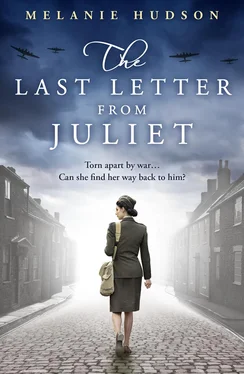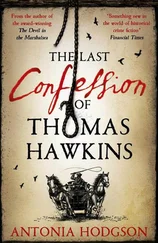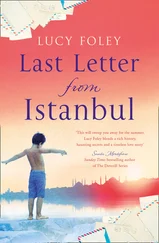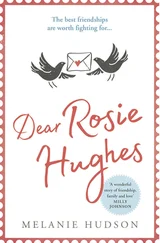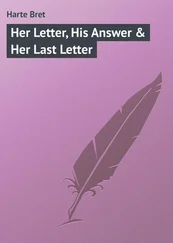I rested the letter on my knee just as a crash outside coincided with the sudden outage of the lights and the television turned to black. The glow from the fire provided sufficient ambient light for me to reach into the sideboard and find the torch, but the battery must have been an old one because the torchlight was weak and to my disappointment, within a few seconds, petered out.
Determined to take on some of the inner strength of the remarkable woman who had written a note to herself at ninety-two years old to never give in, I surrounded myself with candles, stoked the fire and wrapped the russet shawl tighter around my shoulders. And despite knowing that I shouldn’t waste my phone battery on a little light reading, not tonight of all nights, I got myself cosy on the sofa, abandoned Harry Potter, enabled the torch on my phone and began to read.
A Cornish Christmas
Newspaper Cutting: The Bicester Herald
FREE AEROPLANE FLIGHTS FOR TEN LUCKY READERS!
AIR DISPLAY EXTRAVAGANZA!
Reach for the stars with the one and only
LOUIS CARON FLYING CIRCUS!
Old Bradley’s Field
1 stJuly (for one day only)
2.30 p.m. till dusk
Star Attraction
JULIET CARON
The daredevil darling of the skies and Britain’s finest child star &aerobatic pilot
Admission 1s. Children 6d.
My name is Juliet Caron and although it would be difficult for anyone to believe if they saw me now (age has a dreadful habit of throwing a dust sheet over the vibrancy of youth) I was once the celebrated flying ace and undisputed star of the one and only Louis Caron Flying Circus .
I do not say this to boast, well, maybe a little bit, but to explain how it was that my father taught me to fly almost as quickly as I learned to walk and how, on a bright winter’s afternoon just a few days before Christmas 1938, I found myself soaring one thousand feet above Cornwall in my bright yellow Tiger Moth, looking for angels. It was a simple time in my life. Simple in the way that only those brief years before we know the agony of love, can be. My lungs were exploding with the exuberance of youth and my face was tight against the freezing air. In sum, I was living a life that was just about as alive as it is possible for a human life to be.
But first I must tell you a little of the flying circus, because my childhood was the circus, it moulded those formative days when the personality begins to take shape. My circus years were wonderful years. They were the years I had my parents with me, parents who were – and always would be – my inspiration, my warriors, my rocks.
When I was fourteen a journalist asked me to describe what being part of a flying circus was like. My father stood by me while I thought of my answer. We were in Sam Bryant’s field near Bicester, Oxfordshire, our aircraft lined up side by side, waiting to display. The crowd was arriving and the buzz of expectation bounced in the air while a cornflower blue sky kissed by a soft, silky breeze heralded the chance of a wonderful display. Tongue-tied, I looked at my father, who knelt next to me, and stalled as to what to say. He said to close my eyes and imagine how it feels to fly – to say the first thing that came into my head. The answer I gave was the answer of a child, but I would have given exactly the same answer as an adult, because the euphoria of flying – that feeling of absolute freedom – never left me.
‘Imagine heaven on earth,’ I said, ‘or rather, heaven in the skies. Imagine you’re in a dream and in that dream you somehow shrink down to the size of a doll and strap yourself onto the back of a golden eagle. You cling on to his feathers while he swoops and dives and soars and loops. And then you realise that if you’re very gentle with him and pull lightly on a feather here and there, you can control him a little, and then you’re flying too, every bit and just as naturally as the bird, and every element hits you with a freshness that can’t be matched, every sense is bright and alive. And then the bird dives towards the earth, barely missing the ground, before turning on a hairpin and soaring away. You are not in control at that moment, I think, but you are not in danger either, not so long as he – you – pull up in time. But that’s the best thrill of all – the not completely knowing if you’ll pull out of the dive in time. You simply have to trust, have faith in your judgement and let go of all fear. But you do pull out, because instinct and survival and an understanding of how to fly and how to move through the air kicks in, and you climb higher and take a breath, but not for long, because then you jump off the bird and into your father’s arms and cling on while he spins you around and around and the whole world is no more than a line of spinning colour. And your hair and skirt and legs are flung out at ninety degrees and you know that if he lets you go, you’ll fly out of the dream and into oblivion. But again, you have to trust, to become a part of the motion, to know that he will never let you go, you’re safe.’ I glanced up at Father and smiled. ‘I suppose I just feel full of joy and completely free. That’s all, really.’
An hour after the interview, my Father and mother died. Father was flying and mother was his wing-walker, her long hair and scarf trailing behind her. She was waving at me just before she died. I was standing next to my Tiger Moth, my performance coming later. I waved back at her, proud and happy. But then Pa lost control somehow and didn’t pull up in time, and I was no longer waving but screaming and running, not believing such a thing could possibly be true, already aching for a feeling I would only ever know once again – that feeling of unquestioned security and unconditional love.
But back to Cornwall and Christmas 1938.
The little Tiger Moth, its Gypsy engine humming a familiar tune, clung to the Cornish coast as I peered over the side, my face tight against the freezing slap of the winter air. I was looking for my final navigational landmark – three small craggy mounts known locally as the Angels – that sat a few hundred yards out to sea next to a little fishing village called Angels Cove. All I had to do was to find the mounts, then a mile or so further along the coast I would find my destination, a rather grand-looking house called Lanyon and in turn, my landing strip.
I took a moment to glance down again and cross-reference the river arteries on a map before turning at Lizard Point to follow the coast northbound. If my calculations were correct, the mounts would be on the nose in two minutes exactly. They were, and looked exactly like stepping stones plopped into the sea for the convenience of a Cornish giant. After circling around the Angels a couple of times to take a closer look, I headed inland and descended, slowing to almost stalling speed looking for Lanyon – a large, red-brick manor house, with four gables and twelve chimneys. And suddenly it was there, sitting above a little patch of sea haze, in majestic reverence, on the cliffs above the cove.
The landing strip was nothing more than the lawned area in front of the house, but drat it all, a downdraft from the cliffs pulled at the aircraft’s little wooden frame as I approached, dragging me far too close to a line of very tall cedar trees as I turned finals. I powered on, overshot the approach and climbed away, waving cheerily at a couple of gardeners just a few feet below, who were leaning on rakes, open-mouthed, watching. The performer in me not dead but simply sleeping, couldn’t resist throwing the Moth into a tidy little barrel roll, before disappearing off over the horizon, to find pastures new and within these pastures, hopefully, a safe place to land. Within a minute I had found a stretch of level grass on the cliffs, directly above Angels Cove. There was a large barn in the corner of the field, too, which, if empty, could act very nicely as a store for the Moth. I turned into the wind, began my final decent and moments later, to my great relief, landed safely.
Читать дальше
